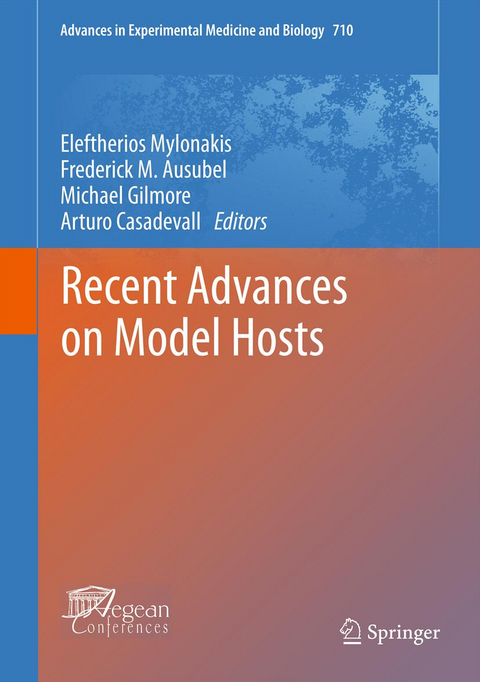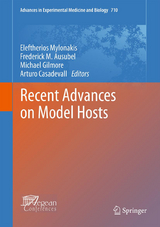Recent Advances on Model Hosts
Springer-Verlag New York Inc.
978-1-4419-5637-8 (ISBN)
This book provides a series of reports from the 1st International Conference on Model Hosts. This first of its kind meeting focused on invertebrate, vertebrate and amoeboid systems used for the study of host-pathogen interactions, virulence and immunity, as well as on the relevance of these pathogenesis systems and mammalian models. Importantly, a common, fundamental set of molecular mechanisms is employed by a significant number of microbial pathogens against a widely divergent array of metazoan hosts. Moreover, the evolutionarily conserved immune responses of these model hosts have contributed important insights to our understanding of the innate immune response of mammals.
This book provides a series of reports from the 1st International Conference on Model Hosts. This first of its kind meeting focused on invertebrate,vertebrate and amoeboid systems used for the study of host-pathogen interactions, virulence and immunity, as well as on the relevance of these pathogenesis systems and mammalian models. Importantly, a common, fundamental set of molecular mechanisms is employed by a significant number of microbial pathogens against a widely divergent array of metazoan hosts. Moreover, the evolutionarily conserved immune responses of these model hosts have contributed important insights to our understanding of the innate immune response of mammals.
Amoeba Provide Insight Into The Origin Of Virulence In Pathgenci Fungi.- X Of Model Hosts and Man: Using Caenorhabditis elegans, Drosophila melanogaster and Galleria mellonella as model hosts for infectious disease research.- Caenorhabditis elegans as an Alternative Model to Study Senescence of Host Defense and the Prevention by Immunonutrition.- Bacterial effectors: learning on the fly. A Drosophila Asthma model - what it tells us the fly about inflammatory diseases of the lung.- Elucidating the in vivo targets of Photorhabdus toxins in real-time using Drosophila embryos.- Ecological niche modeling as a tool for understanding distributions and interactions of vectors, hosts, and etiologic agents of Chagas disease.- Where Simplicity Meets Complexity: Hydra, a Model for Host -Microbe Interactions.- Tick As A Model For The Study Of A Primitive Complement System.- Models Hosts For The Study Of Oral Candidiasis.- Creating a Pro-Survival and Anti-inflammatory Phenotype by Modulation of Acetylation in Models of Hemorrhagic and Septic Shock.
| Reihe/Serie | Advances in Experimental Medicine and Biology ; 710 |
|---|---|
| Zusatzinfo | VI, 136 p. |
| Verlagsort | New York, NY |
| Sprache | englisch |
| Maße | 178 x 254 mm |
| Themenwelt | Naturwissenschaften ► Biologie ► Evolution |
| Naturwissenschaften ► Biologie ► Mikrobiologie / Immunologie | |
| ISBN-10 | 1-4419-5637-9 / 1441956379 |
| ISBN-13 | 978-1-4419-5637-8 / 9781441956378 |
| Zustand | Neuware |
| Haben Sie eine Frage zum Produkt? |
aus dem Bereich




